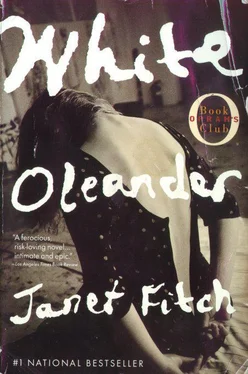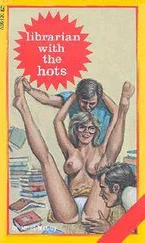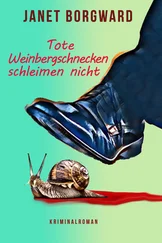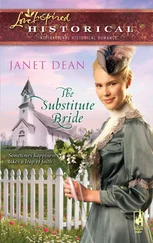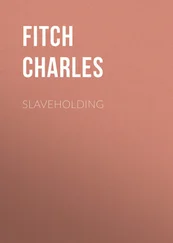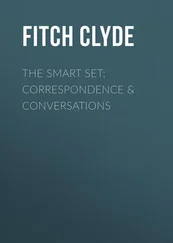Janet Fitch - White Oleander
Здесь есть возможность читать онлайн «Janet Fitch - White Oleander» весь текст электронной книги совершенно бесплатно (целиком полную версию без сокращений). В некоторых случаях можно слушать аудио, скачать через торрент в формате fb2 и присутствует краткое содержание. Жанр: Современная проза, на английском языке. Описание произведения, (предисловие) а так же отзывы посетителей доступны на портале библиотеки ЛибКат.
- Название:White Oleander
- Автор:
- Жанр:
- Год:неизвестен
- ISBN:нет данных
- Рейтинг книги:3 / 5. Голосов: 1
-
Избранное:Добавить в избранное
- Отзывы:
-
Ваша оценка:
- 60
- 1
- 2
- 3
- 4
- 5
White Oleander: краткое содержание, описание и аннотация
Предлагаем к чтению аннотацию, описание, краткое содержание или предисловие (зависит от того, что написал сам автор книги «White Oleander»). Если вы не нашли необходимую информацию о книге — напишите в комментариях, мы постараемся отыскать её.
White Oleander — читать онлайн бесплатно полную книгу (весь текст) целиком
Ниже представлен текст книги, разбитый по страницам. Система сохранения места последней прочитанной страницы, позволяет с удобством читать онлайн бесплатно книгу «White Oleander», без необходимости каждый раз заново искать на чём Вы остановились. Поставьте закладку, и сможете в любой момент перейти на страницу, на которой закончили чтение.
Интервал:
Закладка:
No, she was making this up. Trying to snare me, trip me up, stuff me back in her sack. It wasn’t going to work, not anymore. I had freed myself from her strange womb, I would not be lured back. Let her wrap her new children in fantasy, conspire with them under the ficuses in the visitors yard. I knew exactly what there was to be frightened about. They had no idea there were snakes in the ivy.
IN FOURTH-PERIOD American history at Marshall High School, we were studying the Civil War. In the overcrowded classroom, students sat on windowsills and the bookcases in the back. The heat in the classroom wasn’t working and Mr. Delgado wore a thick green sweater someone knitted for him. He wrote on the board, backhand, the word Gettysburg, as I tried to capture the rough weave of the sweater and his awkward stance on my lined notebook paper. Then I turned to my history book, open on the desk, with its photograph of the great battlefield.
I’d examined it at home under a magnifying glass. You couldn’t see it without the glass, but the bodies in the photograph had no shoes, no guns, no uniforms. They lay on the short grass in their socks and their white eyes gazed at the clouded-over sky and you couldn’t tell which side they were on. The landscape ended behind a row of trees in the distance like a stage. The war had moved on, there was nothing left but the dead.
In three days of battle, 150,000 men fought at Gettysburg. There were fifty thousand casualties. I struggled with the enormity of that. One in three dead, wounded, or missing. Like a giant hole ripped in the fabric of existence. Claire died, Barry died, but seven thousand died at Gettysburg. How could God watch them pass without weeping? How could he have allowed the sun to rise on Gettysburg?
I remembered my mother and I once visited a battlefield in France. We took a train north, a long ride. My mother wore blue, there was a woman with thick black hair and a man in a worn leather jacket with us. We ate ham and oranges on the train. There were stains inside the oranges, they were bleeding. At the station, we bought poppies, and took a taxi out of town. The car stopped at the edge of an enormous field. It was cold, the brown grass bent down in the wind. White stones dotted the plain and I remembered how empty it was, and the wind passed right through my thin coat. Where is it? I asked. 7cz, the man said, stroking his blond mustache. White plaster in his hair.
I stared at the short rippling grass, but I couldn’t picture the soldiers there dying, the roar of cannons, it was so quiet, so very empty, and the poppy in my hand throbbed red like a heart. They took pictures of each other against the yellow-gray sky. The woman gave me a chocolate in a gold wrapper on the way home.
I could still taste that chocolate, feel the poppy red in my hand. And the man. Etienne. The light came down from a skylight into his studio, glass honeycombed with chicken wire. It was always cold there. The floor was gray concrete. There was an old gray couch bolstered with newspapers, and everything was covered with white dust from the plaster he used making his statues, plaster covering wire and rags. I played with a wooden sculptor’s doll there, posing it while my mother posed.
So much white. Her body, and the plaster, and the dust, we were white as bakers. The old space heater he placed near her stool didn’t do much but buzz and throw out the smell of burned hair. He played French rock’n’roll. I could still feel how cold it was. He had a skeleton hanging from a hook that I could make dance.
She sent me down to the store for a bottle of milk. Une bouteille du lait, I rehearsed as I walked. I didn’t want to go but she made me. The milk came in a bottle with a bright foil lid. I got lost on the way back. I wandered in circles, too frightened to cry, holding the milk in the gathering dusk. Finally I was too tired to walk, and sat down on the steps of an apartment house by the rows of buttons, darkened except where the fingers touched, there it was bright. A glass door with a curved handle. Smell of French cigarettes, car exhaust. Flannel trouserlegs went by, nylons and high heels, woolen coats. I was hungry but I was afraid to open the milk, afraid she would be angry.
Suddenly I saw the blank windows of my dream.
Où est ta maman? the nylons asked, the trouserlegs asked. Elle revient, I said, but I didn’t believe it.
My mother jumped out of a taxi in her Afghan coat with the embroidery and the curly wool trim. She screamed at me, grabbed me. The bottle slipped from my hands. The way the milk looked on the sidewalk. Shiny white, with sharp pieces of glass.
ON THE WAY home from school, I copied the battlefield photograph and sent it to her with four cut-out words, loose in an envelope:
WHO REALLY ARE YOU
I SAT ON the rag rug in my room after dinner, cutting old magazine covers into shadow puppets with the X-acto and sewing them onto bamboo skewers I’d saved from Tiny Thai. They were mythical figures, half-animal, half-human—the Monkey King, the antlered man who was sacrificed each year to fertilize the crops, wise centaur Chiron and cowheaded Isis, Medusa and the Minotaur, the Goat Man and the White Crow Woman and the Fox Mistress with her latest moneymaking scheme. Even sad Daedalus and his feathered boy.
I was sewing the Minotaur’s arm to his body when there was a soft knock on the door. Musk, the smell of something stolen. Sergei leaned against the door jamb, his muscled arms folded, in a crisp white shirt and jeans, a gold watch like a ship’s clock on his wrist. His eyes flicking around the room, taking in the clutter—clothes piled in boxes, my bags of full sketch pads and finished drawings, the flowered curtains fading to pastel. His glance took in everything, but not like an artist’s, seeing form, seeing shadow. This gaze was professional, wordlessly estimating the possibilities, how hard it would be to get what he wanted through the window and out to the truck. Nothing that he saw was worth bothering about. Threadbare carpet, old beds, Yvonne’s paper horse, a paperweight with glitter instead of snow that said Universal Studios Tour. He shook his head. “A dog should not live here,” he said. “Astrid. What you going to do?”
I tied the Minotaur’s arm to the skewer, held it in front of the lamp, made it go up and down, miming his words. “A dog should not live here,” I said, imitating his heavy accent. “Children, yes. But dogs no. No dogs.” The Minotaur pointed at him. “What you got against dogs?”
“Play with dolls.” He smiled. “Sometimes you are woman, sometimes little girl.”
I put the Minotaur in a can with the others, a bouquet of paper demigods and monsters. “Rena’s not here. She’s out getting loaded with Natalia.”
“Who say I come to see Rena?” Sergei peeled himself away from his doorjamb and came in, casually, just wandering, innocent as a shoplifter. He picked things up and put them down exactly where they had been, and he never made a sound. I couldn’t stop watching him. It was as if one of my animal-men had come to hfe, as if I had summoned him. How many times had I thought of just this moment, Sergei come a-calling, like a cat yowling on the back fence for you. I emitted some civetlike female stink, a distinct perfume of sexual wanting, that he had followed to find me here in the dark.
Sergei picked up Yvonne’s paperweight and shook it, watched the glitter fall. Out in the living room, the TV was on, Yvonne absorbed in some trendy nighttime drama about hip young people wearing clothes from Fred Segal, with good haircuts and more stylish problems than hers. He stuck a finger in Yvonne’s eyeshadow tray, traced some on his eyelids. “What you think?” he smiled, cocking his head, looking at himself, smoothing his blond hair back with one hand, vain as a woman. He watched me in the mirror.
Читать дальшеИнтервал:
Закладка:
Похожие книги на «White Oleander»
Представляем Вашему вниманию похожие книги на «White Oleander» списком для выбора. Мы отобрали схожую по названию и смыслу литературу в надежде предоставить читателям больше вариантов отыскать новые, интересные, ещё непрочитанные произведения.
Обсуждение, отзывы о книге «White Oleander» и просто собственные мнения читателей. Оставьте ваши комментарии, напишите, что Вы думаете о произведении, его смысле или главных героях. Укажите что конкретно понравилось, а что нет, и почему Вы так считаете.
